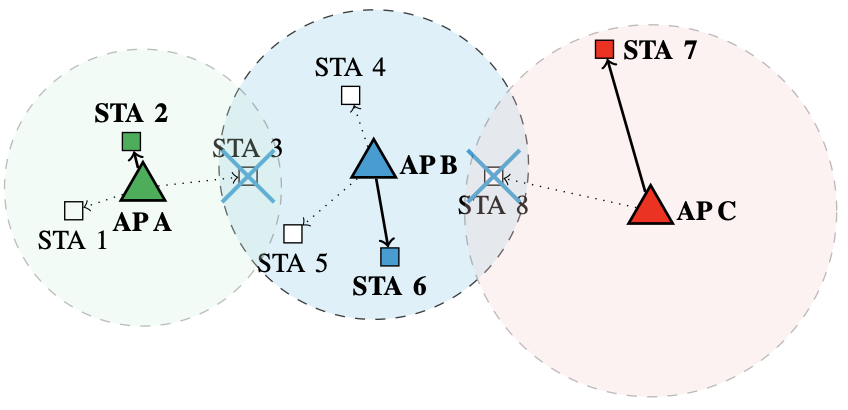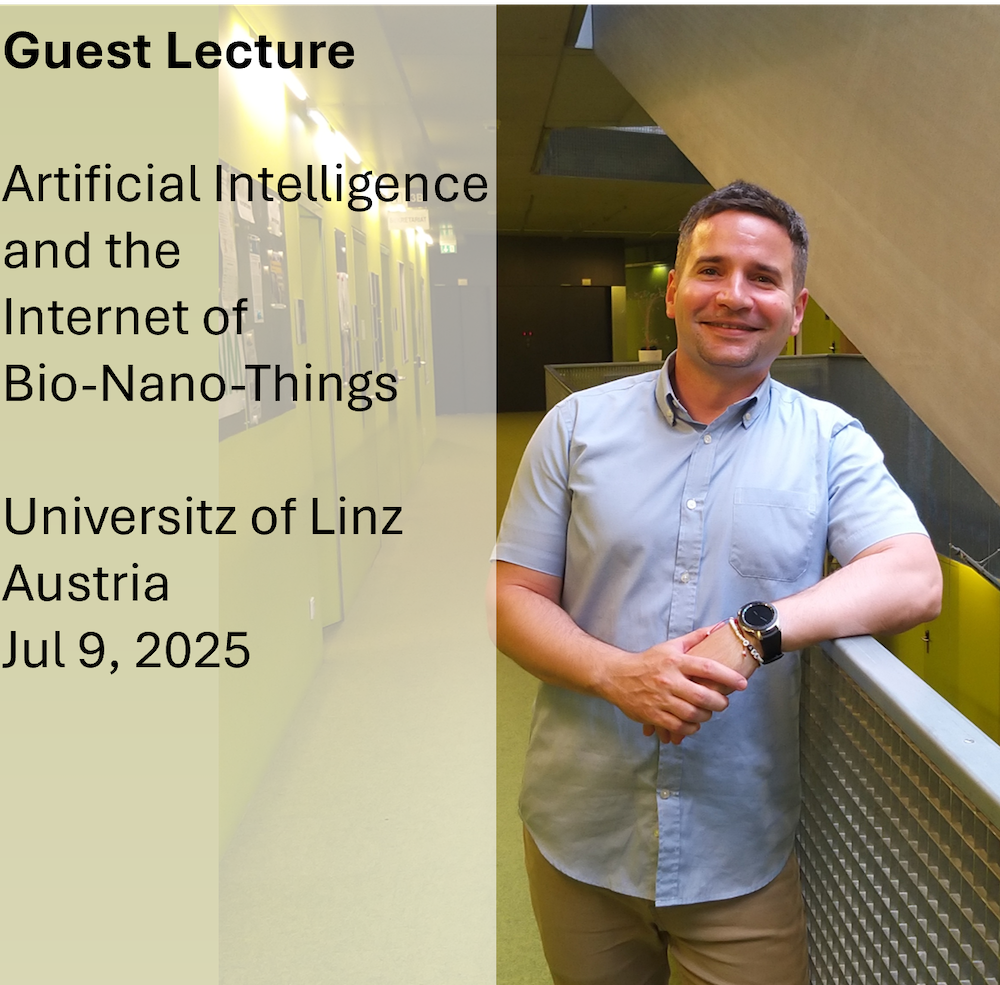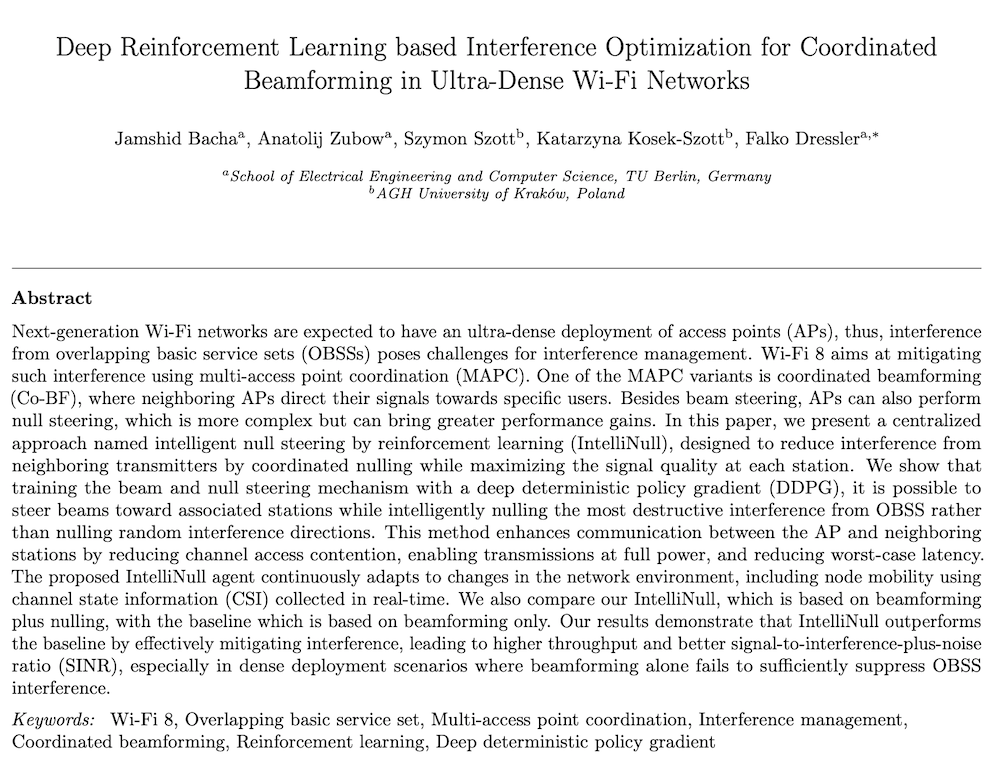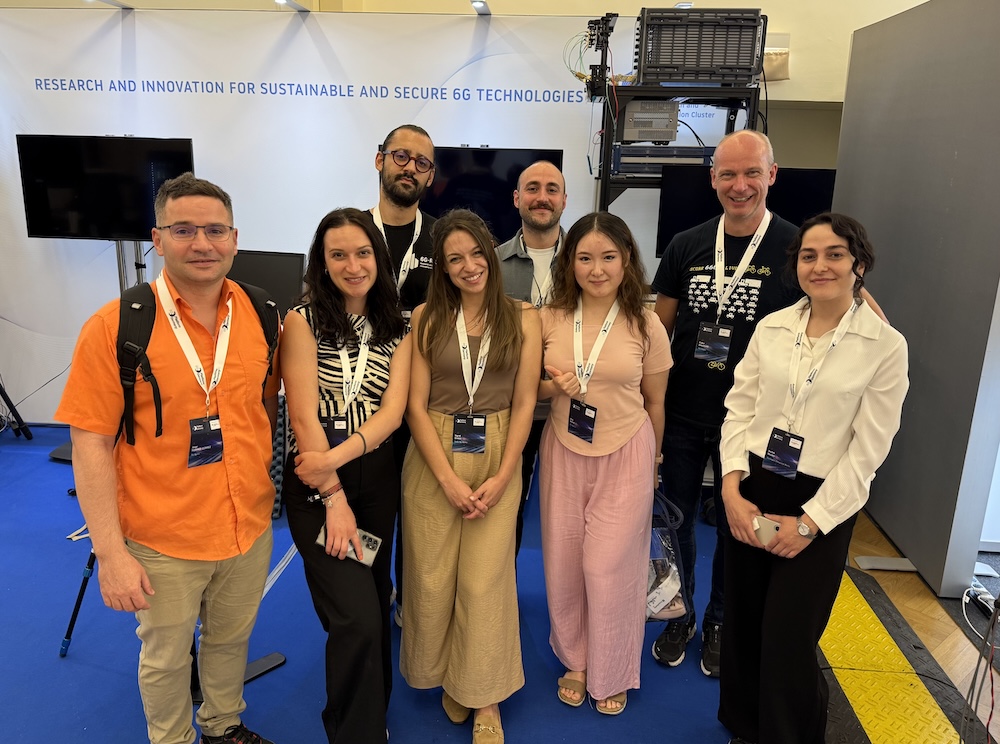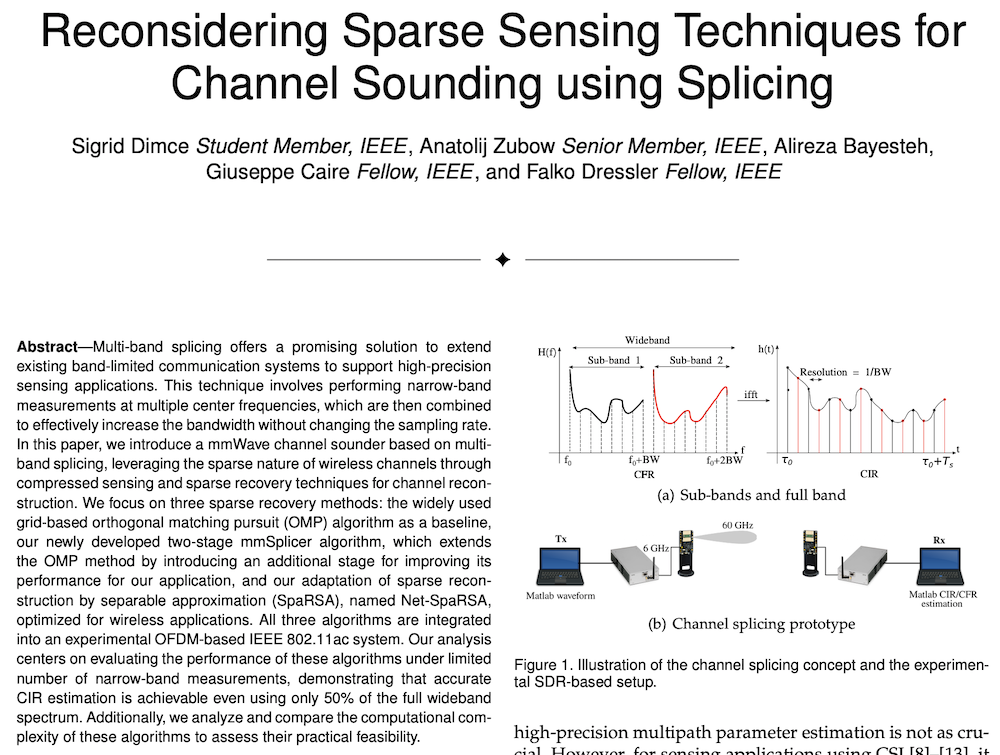Literature Database Entry
debus2024synchronized
Lisa Y. Debus, Pit Hofmann, Jorge Torres Gómez and Falko Dressler, "Synchronized Relaying in Molecular Communication: An AI-based Approach using a Mobile Testbed Setup," IEEE Transactions on Molecular, Biological and Multi-Scale Communications, vol. 10 (3), pp. 470–475, September 2024.
Abstract
Relay mechanisms are an important part of commu- nication systems and, therefore, naturally occurring molecular communication (MC) links. Multiple techniques have been proposed for designing MC relay-aided setups, assuming synchronous operation and perfect timing during the decoding process. In this paper, we propose using a reinforcement learning (RL)-based synchronizer to continually adapt a decoding threshold and detect transmitted synchronization frames in a dynamic MC environment. We implement our approach in a two-hop MC link model with mobility and show its advantages compared to filter- based maximum likelihood (ML) synchronization. Thereby, we utilized a macroscale, air-based MC testbed for the experimental determination of the channel impulse response (CIR) for a more realistic channel model. Our simulation results exhibit the potential of an RL-based synchronizer with a similarly high detection rate, a false positive rate one order of magnitude lower, and a misalignment several bit times lower compared to the state of the art.
Quick access
Original Version ![]() (at publishers web site)
(at publishers web site)
Authors' Version ![]() (PDF on this web site)
(PDF on this web site)
BibTeX ![]()
Contact
Lisa Y. Debus
Pit Hofmann
Jorge Torres Gómez
Falko Dressler
BibTeX reference
@article{debus2024synchronized,
author = {Debus, Lisa Y. and Hofmann, Pit and Torres G{\'{o}}mez, Jorge and Dressler, Falko},
doi = {10.1109/TMBMC.2024.3420792},
title = {{Synchronized Relaying in Molecular Communication: An AI-based Approach using a Mobile Testbed Setup}},
pages = {470--475},
journal = {IEEE Transactions on Molecular, Biological and Multi-Scale Communications},
issn = {2332-7804},
publisher = {IEEE},
month = {9},
number = {3},
volume = {10},
year = {2024},
}
Copyright notice
Links to final or draft versions of papers are presented here to ensure timely dissemination of scholarly and technical work. Copyright and all rights therein are retained by authors or by other copyright holders. All persons copying this information are expected to adhere to the terms and constraints invoked by each author's copyright. In most cases, these works may not be reposted or distributed for commercial purposes without the explicit permission of the copyright holder.
The following applies to all papers listed above that have IEEE copyrights: Personal use of this material is permitted. However, permission to reprint/republish this material for advertising or promotional purposes or for creating new collective works for resale or redistribution to servers or lists, or to reuse any copyrighted component of this work in other works must be obtained from the IEEE.
The following applies to all papers listed above that are in submission to IEEE conference/workshop proceedings or journals: This work has been submitted to the IEEE for possible publication. Copyright may be transferred without notice, after which this version may no longer be accessible.
The following applies to all papers listed above that have ACM copyrights: ACM COPYRIGHT NOTICE. Permission to make digital or hard copies of part or all of this work for personal or classroom use is granted without fee provided that copies are not made or distributed for profit or commercial advantage and that copies bear this notice and the full citation on the first page. Copyrights for components of this work owned by others than ACM must be honored. Abstracting with credit is permitted. To copy otherwise, to republish, to post on servers, or to redistribute to lists, requires prior specific permission and/or a fee. Request permissions from Publications Dept., ACM, Inc., fax +1 (212) 869-0481, or permissions@acm.org.
The following applies to all SpringerLink papers listed above that have Springer Science+Business Media copyrights: The original publication is available at www.springerlink.com.
This page was automatically generated using BibDB and bib2web.

